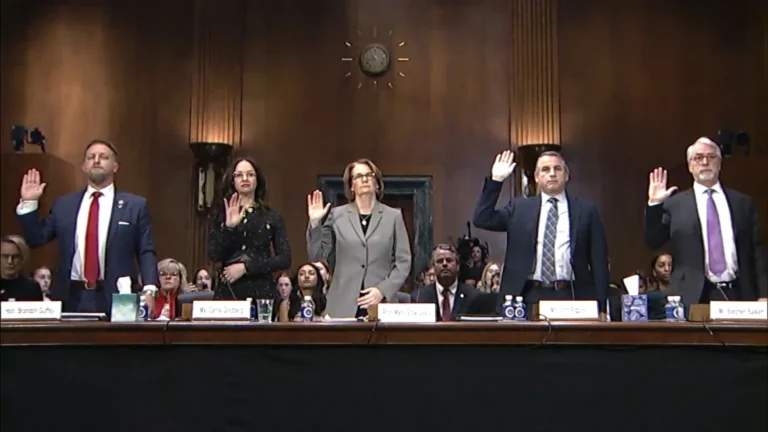Do you remember the first time you heard about the book Fifty Shades of Grey?
Maybe you saw it being promoted on social media or someone reading it in public. Others may have encountered the book on display in a local book or grocery store or heard it being discussed among friends. One thing is for certain, most people are aware of the novel that launched both a book and movie franchise that took pop culture by storm.
The first Fifty Shades movie, Fifty Shades of Grey, was released in 2015 followed by the sequel, Fifty Shades Darker, in February 2017. The first film is known for the graphic sexual scenes involving BDSM (bondage and discipline, dominance and submission, sadism and masochism) and the coercive relationship between Christian Grey, the title character, and Ana Steele, the protagonist. Fifty Shades Darker also included graphic sex scenes and continued the portrayal of the unhealthy and dangerous romantic relationship developed by the book series.
Recently, a customer at a Kroger grocery store (who has requested to remain anonymous) noticed a large Fifty Shades Darker film display near the checkout lanes.
Upset by this extremely public display of the controversial franchise, the man emailed Kroger executives encouraging them to drop products that “glamorize and legitimize violence against women by sexual violence, abuse of power, female inequality, and coercion.”
“Ask yourself this question, would the way women are treated in these movies be approved as acceptable treatment by Kroger’s Human Resources policies?” he asked in his email. He then went on to remind Kroger that they are responsible for “forming the character (or in the case of Fifty Shades, lack of it) of its customers” by the type of media they distribute.
He quoted the National Center on Sexual Exploitation in his email: “Fifty Shades Darker also sends the dangerous message that women can ‘fix’ their abuser . . . and that domestic violence can be excused because of the abuser’s troubled past. These are prevalent cultural myths that contribute to some women choosing to stay in dangerous and unhealthy relationships. . . .”
At the end of his email, the customer called for Kroger to “reconsider displaying [and] selling not only the [Fifty Shades Darker] DVD but the book.” He reminded Kroger that dropping this product would not negatively impact the company, but had the potential to “save many lives.”
Within a day, the Kroger Public Affairs Manager emailed the customer back.
The response briefly stated that “in general, we [the Kroger Company] believe customer choice is the best approach.” The Public Affairs Manager also related how “individual markets or stores among our family of stores have the ability to decline to sell a publication based on the content and local sentiment.”
However, the email went on to say that the costumer’s feedback was taken into consideration and that “the display of DVDs will be moved from the U-scan area to a location where other DVDs and general merchandise are sold.”
Since the violent sexual relationship depicted in the first Fifty Shades of Grey film received such a backlash, including the #FiftyShadesIsAbuse campaign led by the National Center on Sexual Exploitation, Fifty Shades Darker avoided displays of BDSM, unlike the book.
Many people, especially women, responded much more positively to Fifty Shades Darker saying it was the type of “sexy romance movie” they originally wanted from the Fifty Shades series. On the other hand, some people, a majority of whom were men, complained that they were promised something “fifty shades darker” and instead received a film with relatively no BDSM at all.
However, this does not mean that Fifty Shades Darker is now promoting healthy intimate relationships. Throughout the film, Christian is continuously abusive and controlling of Ana.
Christian is openly rude to Ana’s boss when he sees him speaking with her because “He [Ana’s boss] wants what’s his.” He controls her bank account without her permission. Christian has Ana stalked and compiles a file about her leading her to exclaim, “This isn’t a relationship! It’s ownership!” When Ana tells Christian that she is planning on spending a few days in New York, he texts her, “The answer is NO.” Although Christian eventually agrees to let Ana go to New York, she obviously is worried and tells her boss she cannot make the trip.
Despite the fact that Ana regularly becomes angry with Christian’s abusive and controlling behaviors, she becomes defensive when one of his former partners warns her that Christian is dangerous. “He’s not like that anymore . . . there is no way that someone like you could ever understand what we have!” This type of denial is common among women in abusive and coercive relationships, yet the film tries to romanticize it.
Later in the film, Ana admits that she is scared of Christian and not “able to give him the kind of submission he needs” proving that she has indeed become victim to an abusive man.
Despite the lack of violent sex, Fifty Shades Darker is just as dangerous as its prequel. A controlling relationship may not be as obviously unsafe to some as the physically abusive one in the first film, but the reality is that both are extremely dangerous. Young people in particular have a hard time realizing that Christian’s obsessive behavior is abusive and not “sweet,” “romantic,” or “passionate.”
Although media that promotes abusive relationships can be disheartening, stories like that of the Kroger customer who pushed back against the normalization and distribution of sexually exploitive material serve as a reminder that small actions can make a difference.
This should prompt us all to take action the next time we encounter sexually exploitative material at the checkout lane!
For more information on the Fifty Shades series and what you can do to combat the normalization of abusive relationships visit the National Center of Sexual Exploitation.



